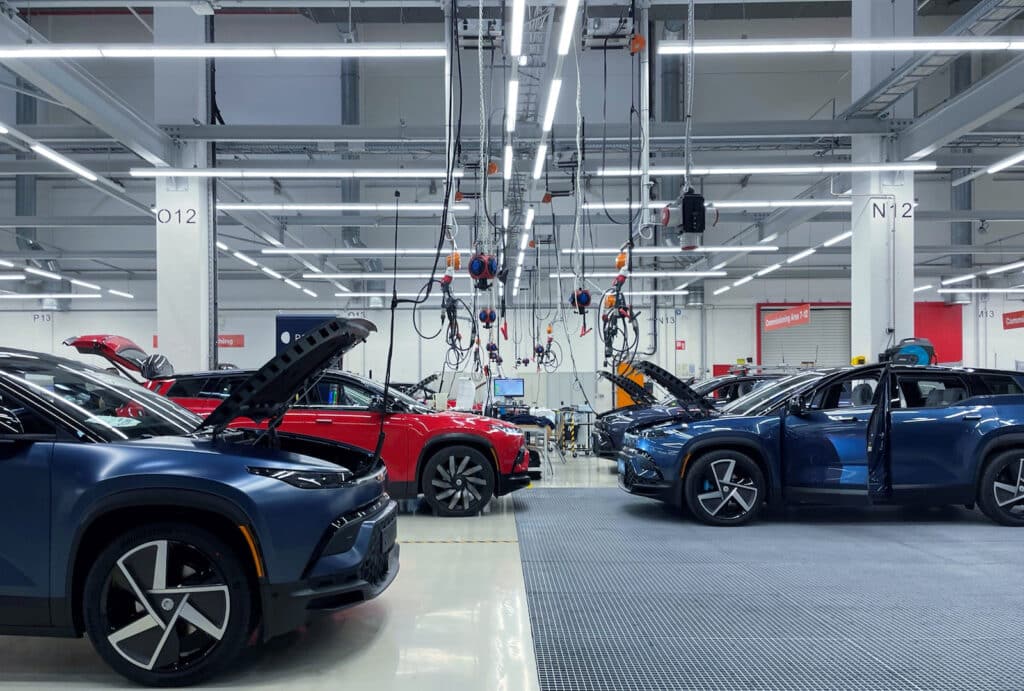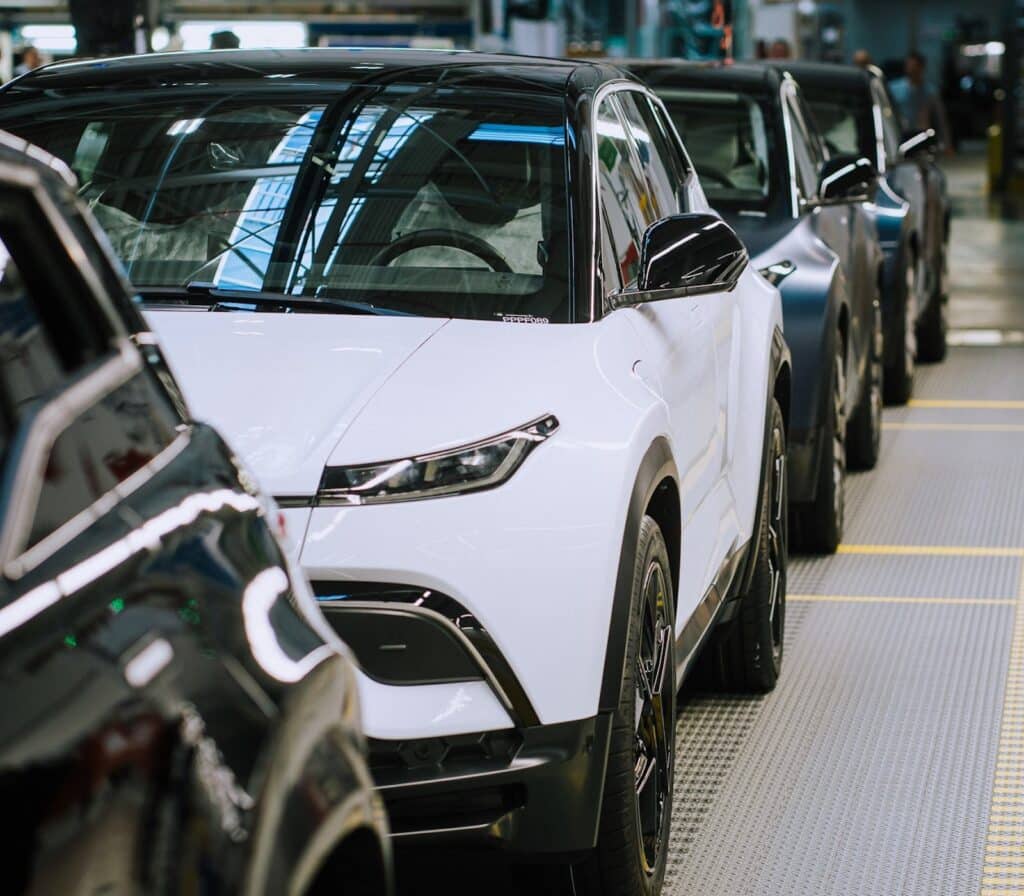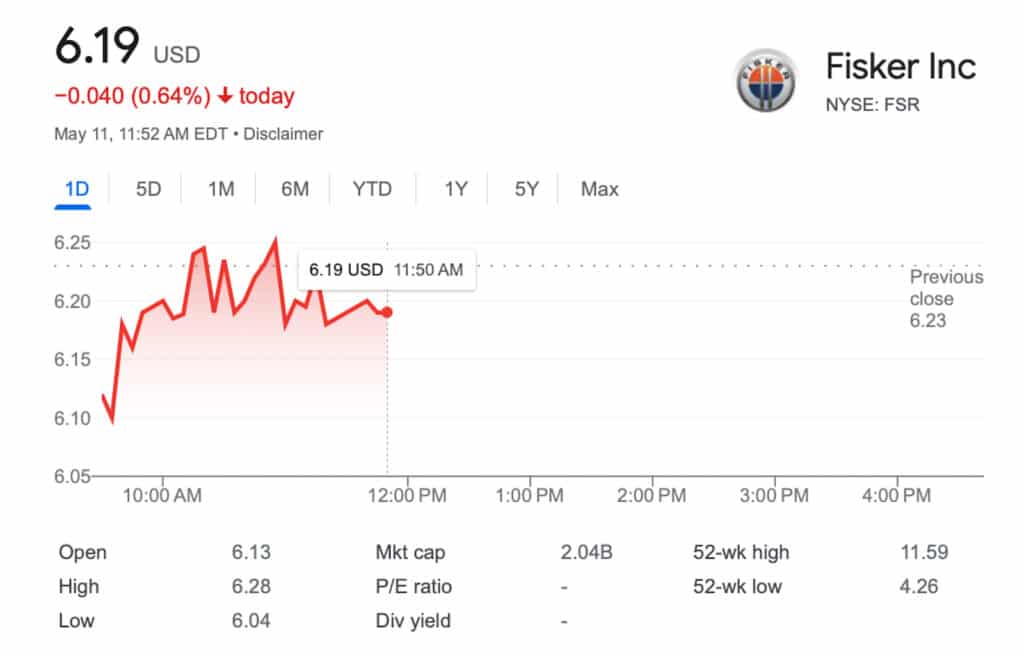(Editor’s note: Fisker Pear pricing was updated in this story.)
After a series of delays, this should have been a good week for EV startup Fisker Inc. The automaker finally delivered the first Ocean SUV to a customer in Denmark, the birthplace of its founder Henrik Fisker.

But that development was pushed to the back by plenty of other news from the California-based automaker, starting with worse-than-expected first-quarter losses, a cut in its planned production, and word that software glitches with the electric SUV are causing serious problems that could take months to resolve. The automaker also confirmed it will delay until 2025 launch of a second model, the Pear.
Despite all the seeming setbacks, CEO Fisker continues to take a positive stand, insisting that his eponymous company will make significant progress going forward. “We just delivered our first couple of cars so we’re now moving from a start-out to an actual revenue-generating car company,” Fisker said during an appearance on CNBC.
While acknowledging a number of challenges, including the needed federal approval to begin selling the Ocean in the U.S., the CEO said, “I think our results are actually very strong.”
That isn’t the view that investors have been taking, however.
Investors not happy

The automaker was expected to lose 31 cents per share during the January-March period. It actually went 38 cents, or $120.6 million, into the red. That was down only marginally from a year ago when it lost $122.1 million, or 41 cents a share.
Shares quickly began to dip, though they’ve rebounded during the last few days. Nonetheless, at around $6.25 in mid-morning trading on Thursday, Fisker Inc. Class A stock is well off from its 52-week high of $11.59 a share.
Garrett Nelson, the senior equity analyst at CFRA, is one of the many skeptics, issuing a “Strong Sell” recommendation to clients, and predicting a 12-month target of just $2 a share, due to a “steady drip” of issues facing Fisker.
The weak financial results are only the most immediate, according to analysts.

The automaker is well behind on delivering Ocean to customers, despite claiming to have a strong order bank for the all-electric SUV. A variety of issues have been cited, including software integration problems, both Bloomberg News and Automotive News have reported. The latter outlet this week cited several sources claiming the software issue “could take months to iron out.”
For his part, CEO Fisker acknowledged there have been problems with the SUV’s technology, including hardware problems caused by a supplier’s bankruptcy. He insisted that issue will be sorted out this month.
But Fisker called the report by Bloomberg “a ridiculous article,” and his company issued a statement, “We categorically deny (one of the report’s claims) that the Fisker Ocean can be driven at only low speeds.”
Production problems
During an earnings call, Fisker did acknowledge that production of the Ocean will be lower than originally planned this year. It now expects to build somewhere between 32,000 and 36,000 of the electric SUVs in 2023. It had originally targeted an output of 42,000.
But the chief executive tried to put a positive spin on the numbers, asserting that the targeted output is still 6,000 a month by the end of 2023, a strong performance, Fisker claimed, for an automotive startup.

Ocean currently is being built in Graz, Austria by contract auto manufacturer Magna Steyr, a subsidiary of Canadian auto supplier Magna.
Fisker is planning to launch a second model line, the Pear, that will roll off a former General Motors assembly line in Lordstown, Ohio, the same plant now producing the Lordstown Endurance pickup. The facility is owned by Foxconn, the same Taiwanese firm producing Apple’s iPhone.
The Fisker Pear is expected to start at $29,900, and the automaker hopes it will qualify for the revised federal EV incentives that now require North American production not only of the vehicle but also its batteries. Raw materials also must be sourced locally.
Pear was expected to go into production in 2024. But Fisker this week said that would be pushed back into 2025. The CEO downplayed the delay, insisting it will be “only a few months” behind the original schedule. He indicated one reason for the delay was the need to find a domestic source for the EV’s batteries.








I wonder what drives a person to buy a questionable car like the Fisker when there is a similarly sized Ford or Chevy for probably thousands less.